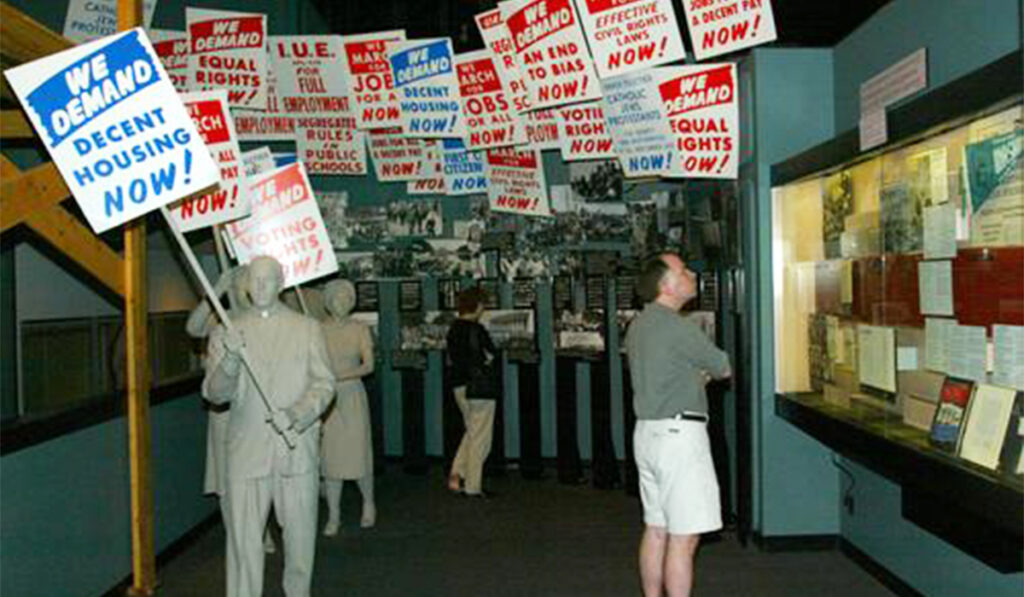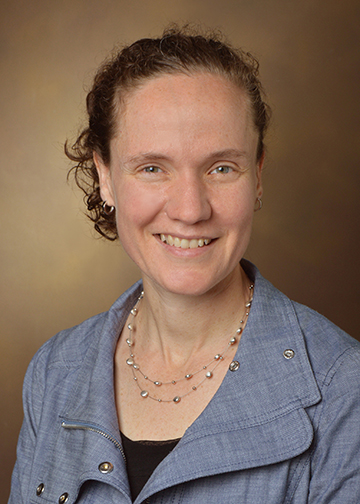Medical care is about more than addressing physical ailments: it is the ability to consider holistically all the determinants of a patient’s health, including socioeconomics, physical environment, and access to health care. Yet, physician training often fails to incorporate this broader view.
A collaboration between Vanderbilt University Medical Center and the University of Mississippi Medical Center, the Goals of Life and Learning Delineated Project (GOL2D) is an initiative designed to provide insight to incoming medical and surgical residents regarding the individuals and the community they are serving.
“When residents and fellows arrive for training at an academic medical center, they often land in a place they only know about through recruiting materials,” said Kyla Terhune, M.D., Vanderbilt’s associate dean for graduate medical education and principal investigator for the grant.
“Understanding the scope of health equity is really understanding who we are, which can often be attributed to history, politics, and larger forces we don’t instinctively think about as physicians.”
“Every place has a distinct history and patient population. Understanding the scope of health equity is really understanding who we are, which can often be attributed to history, politics, and larger forces we don’t instinctively think about as physicians.”
Health equity is one of three pillars of the GOL2D orientation program, along with leadership and health-system sciences. GOL2D is one of just eight projects to receive five-year funding from the American Medical Association as part of its Reimagining Residency initiative. A report on the project’s first year was published in the Journal of Graduate Medical Education.
Nashville’s reputation as a growing, cosmopolitan city with a temperate climate and vibrant entertainment scene is well deserved, “but not necessarily the Nashville our patients know,” Terhune said.
“Even residents who grew up in Nashville don’t know much about the city’s history and how that history impacts the patient experience today. We thought our learners should know more about our patients.”
History and Health Equity
To prepare for helping patients at a large regional medical center, Terhune and colleagues thought residents should learn not only Vanderbilt’s history but also how the institution’s story intertwines with Nashville’s past, including its historic racial and gender inequities.
Andre L. Churchwell, M.D., a Nashville native who became the first Black chief resident at Grady Hospital in Atlanta, is now senior advisor to the chancellor of Vanderbilt University on inclusion and community outreach. Churchwell is a 1975 graduate of the university.
He talks with VUMC residents about the intricate links between Vanderbilt’s history and the Civil Rights movement. While Vanderbilt University Medical School was established in 1874, most of the hospital’s early Black employees filled staff positions, since Jim Crow laws prevented them from being doctors.
The hospital’s patient population was integrated in 1962, and the hiring of the first Black medical school faculty member occurred in 1965. Vanderbilt doctors sometimes still see patients who remember Vanderbilt when it was segregated, Terhune says.
“Their interaction with the hospital, their feelings about the hospital, and their trust level might be very different from what our physicians expect.”
Residents enrolled in the program are also educated on the evolution of Nashville’s neighborhoods, especially historically Black neighborhoods within the city’s core.
“Political decisions made in the last few decades — for instance, building Interstate 40 through downtown — have dramatically changed some neighborhoods,” Terhune said. “This has impacted individuals’ incomes and, subsequently, their health.”
Putting it All in Context
The third component in building a structure of health equity is knowledge of available resources — at the Medical Center and in the community — as well as for specific individuals.
“Does the patient have insurance? What are their resources at home and their support systems? What are the support systems we can derive from community organizations? These all impact how we deliver care,” Terhune said.
“Our goal with the collaboration was to design a framework that any residency program can use for this type of session, but that is unique for their community and their patients.”
The University of Mississippi, where the program also has been implemented, has a different story to tell, she adds.
“Even though Jackson, Mississippi, is really just down the road, it’s an entirely different city, so the same orientation was not appropriate for both. Our goal with the collaboration was to design a framework that any residency program can use for this type of session, but that is unique for their community and their patients.”
At Vanderbilt, Terhune is joined by Jennifer Hess, M.D., and Eleanor Weaver, M.D., along with GME team member Reena Black, who are primarily responsible for curricular development and collaboration with community partners. Program leaders will present an update of GOL2D at the American Association of Medical Colleges (AAMC) Group on Resident Affairs (GRA) national meeting in April.
“We really want individuals at the conference to have that ‘ah-ha’ moment — that the history of their city impacts health care in that city,” she said. “Residents coming in don’t necessarily have that perspective at all. Providing them with that perspective makes them better doctors able to provide better care.”





